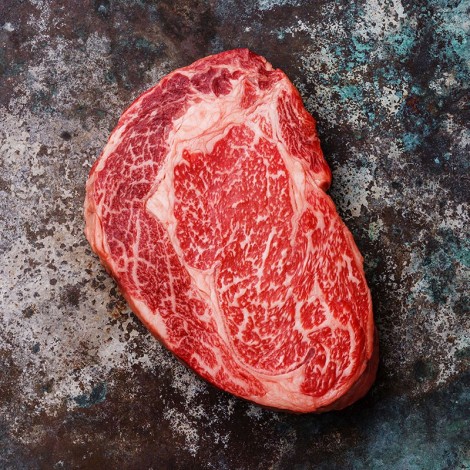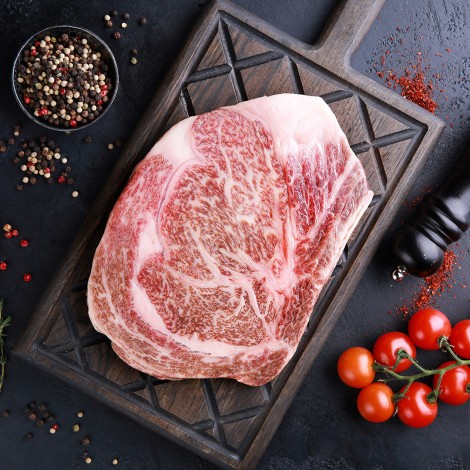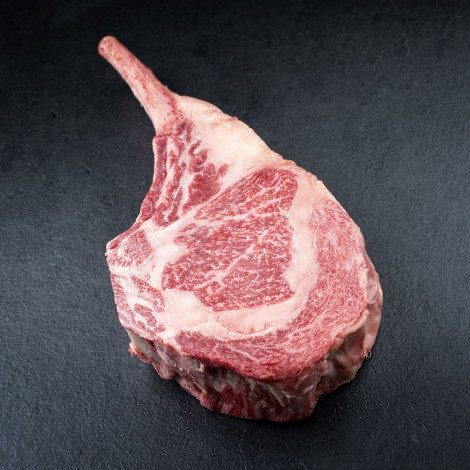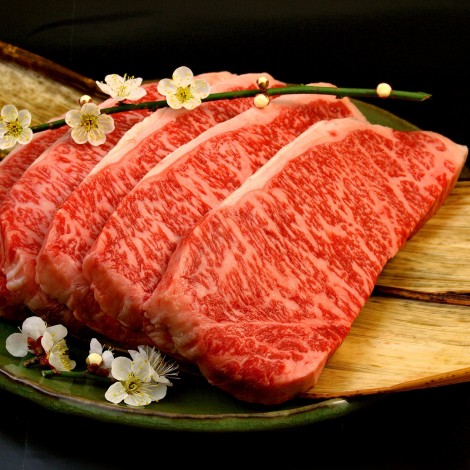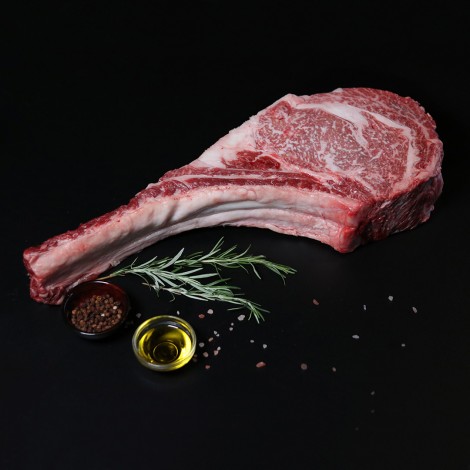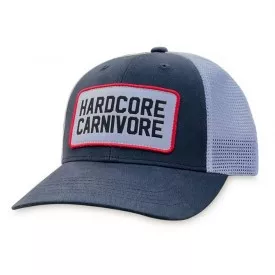- Origin: Australia
- Quality assurance: Wagyu MSA 6+
Filter By
Beef
- Origin: Japan
- Quality assurance: Wagyu A4- BMS 5
- Origin: Australia
- Quality assurance: Wagyu MSA 5
- Origin: Japan
- Quality assurance: Wagyu A4- BMS 5
- Origin: Australia
- Quality assurance: Wagyu MSA 6+
Wide selection of steaks and premium beef cuts
Consistently high quality is assured by our trusted suppliers from many corners of the world, including Poland, Argentina, Australia, the USA and South America. Each cut of meat from our store has been carefully selected and authenticated by a specific producer and national quality system (e.g. USDA beef quality classification, MSA, Red Tractor, QMP). The classic ribeye steaks, strip steaks or T-bone steaks we supply will always be delicious, tender and juicy. Our offer also includes fantastic cuts such as tenderloin or aromatic picanha, brisket or beef ribs. For those looking for interesting solutions and new flavors, there will also be an interesting range of alternative steaks full of meaty flavor such as tri tip, flat iron, flank steak or skirt steak, which will surprise even experienced grillmasters. Burger lovers will also find numerous proposals for themselves, including organic burgers with BIO certification.
How do you know good beef?
The highest quality beef is distinguished from the others with its blood-red color and visible excess fat (the so-called marbling). In the case of vacuum-packed meat, the situation is slightly different. Due to the lack of oxygen, the meat turns dark red, but you should not worry about this turn of events, because when you open the vacuum, it returns to its natural colors. Light and white overgrowths indicate freshness and the meat of young cattle, which has a high content of delicate collagen, which breaks loose during heat treatment. Yellow hypertrophy, on the other hand, indicate a high content of elastin, which comes from the meat of much older animals. When buying meat, do not be afraid to look at it a bit more. Its surface should be moist and shiny, and the smell should be pleasant and delicate.
Which culinary technique to choose?
Beef is a unique meat. Thanks to proper processing, it allows you to create countless dishes in any technique. It is enough to know what elements to choose for a given culinary technique and guaranteed success. Of course, we must have high-quality raw material. Even the best chef will not create a tasty dish out of a bad product. And with good beef, even a preschooler can easily handle the preparation. A good steak does not require marinating or a long, complicated heat treatment. After a few minutes of frying, it will taste perfect.
Chuck - for cooking, stewing and stewing.
Chuckroll - perfect for cooking, stewing, roast, rump steak, rissol and chopped steak.
Ribeye - the most popular choice for a steak, it is also perfect for roasting and frying.
Shoulder - perfect for stews, roasts and roulades, as well as for baking, stewing and grinding for burgers.
Brisket - most often chosen for low and slow cooking (classic bbq), stewing, after grinding the meat is also great for a hamburger.
Short ribs - it is suitable for low and slow cooking (classic bbq) and roasting.
Shank - perfect for cooking, stewing, broth and ossobuco, extremely rich in collagen, it will be especially recommended for athletes and women who care about keeping their skin supple.
Striploin - known primarily as a New York steak, is also perfect for baking whole.
Tenderloin - a well-known and liked beef cut. Perfect for grilling, steaks, roasted whole and tartare.
Top sirloin - great for stewing and baking whole, roast, roulades, steak tartare, rump steak and breeze.
Nutritional values
Beef is rich in protein and helps to improve muscle mass and our figure. Protein is a building block your body uses to repair and create bones, skin, and cartilage. Having enough protein helps us build and maintain lean muscle mass. Of all the macronutrients, protein is the most satiating and appetite-satisfying. It is also an extremely rich source of vitamins, which you can read in detail in our article on the Stekopedia blog "Nutritional values of beef".


